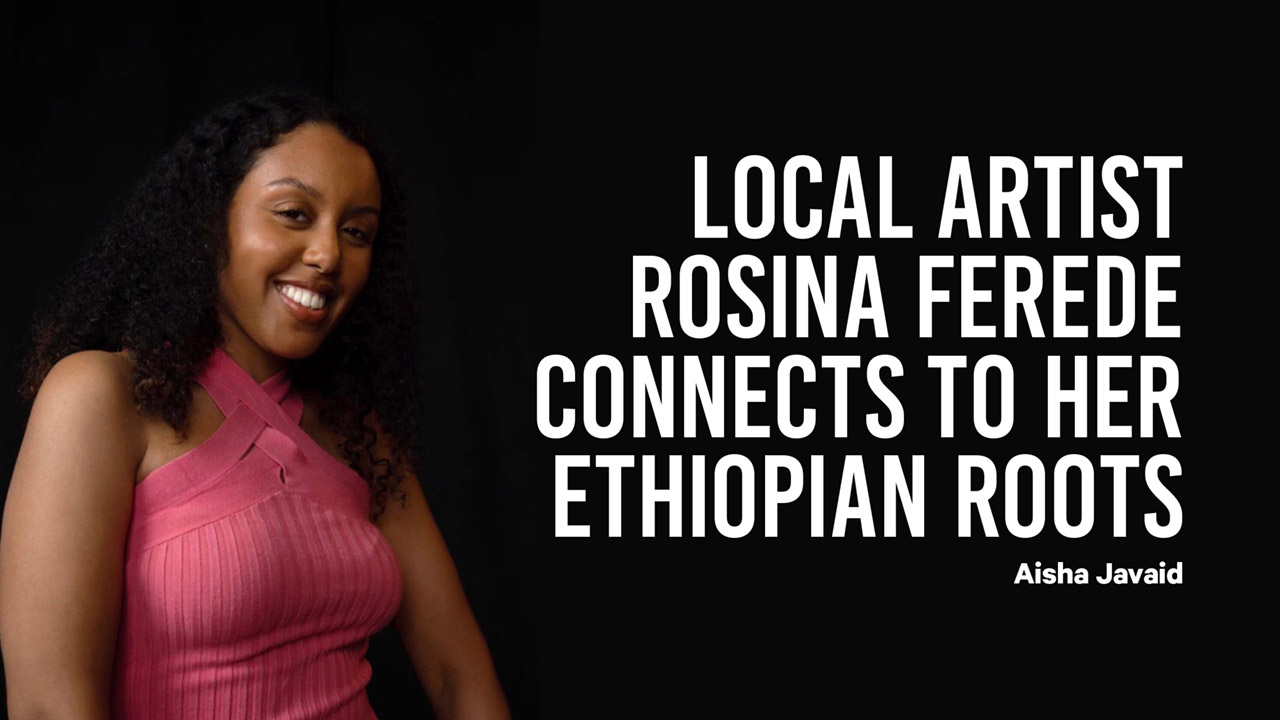Local artist Rosina Ferede connects to her Ethiopian roots
 CREDIT: ROSINABTHEARTIST.WORDPRESS.COM
CREDIT: ROSINABTHEARTIST.WORDPRESS.COMYoung local artist incorporates her Ethiopian roots in her art.
Whether you’re recovering from a tough breakup or celebrating your first job, your mind and heart instantly seek art. Art is a form of expression that affects us emotionally through illustrative or imaginative pieces of work. Examples of the varying styles of art include painting, theatre, literature, and music.
The beauty of art is created by its ability to be adaptive and reconstructed. Often times, artists explore and incorporate different modes of art into their own product, they’re constantly bending the rules. For instance, many artists explore cultural music and fashion world-wide to incorporate into their own work. This allows the art to be unique.
A local artist, Rosina B. Ferede, is an Ethiopian Canadian who combines forms of Canadian and Ethiopian art into her work. She partakes in numerous styles of art, including songwriting, singing, acting, dancing, performing, screen and-blog writing.
Ferede developed a passion for music at an early age. As a young adult, she moved away from home to pursue a career in acting but also managed to be involved in extracurricular activities which allowed her to sing and write songs.
“When I was a kid, I loved singing and dancing (traditional Ethiopian dances). I played the piano and later on, I even began writing my own songs. I would perform my music anytime I was given the opportunity. I mostly performed at my school talent shows. By the time I was 17, I was interested in pursuing a career in acting. I moved away for school in Toronto. I enrolled in a degreediploma program offered by York University and Humber College,” explained Ferede.
Although Ferede feels there’s been improvement in helping aspiring musicians, she still thinks there’s a gap in accessing resources and opportunities.
“I was always trying to pursue music; I honestly didn’t know where to turn. I’d search constantly for like-minded people, shows, programs like Honey Jam and the Remix Project, singing competitions, and open mics. I feel like there is a lot more today compared to several years ago. However, today, I do feel like everything is pretty much done through the internet (due to COVID). Although, I am rooted as an artist in Toronto, I’m still able to be at home here in London and work on my art. “
Moreover, as a Black artist, Ferede shares an experience of bias during a film class, when an individual avoided selecting black students as characters in his exercise.
“This individual looked at a group of us, and honestly didn’t select any Black student to participate in the exercise. I think he was trying to not be racist because he felt that he would probably have to give us a role of either being ‘the Black best friend’ or a criminal. I feel like it’s because the media sees us that way. They don’t see the talent and ability for Black actors to play complex characters.”
In addition, Ferede was and continues to be inspired by Black artists. She grew up listening to African American and Ethiopian music.
“I love a lot of different genres. I listen to world music, but I really appreciate Black music. I grew up listening to Ethiopian music, so there’s a lot of different soundscapes, a lot of like ambient tones, and unique sounds. It’s just beautiful.”
Ferede also has long-term goals of supporting artists in Ethiopia.
“I want to eventually open some type of venture or resource for artists back in Ethiopia. My connection to Ethiopia artistically, is at the centre of what I do and a part of my identity. Like, I do Ethiopian dancing and I’m very fascinated by the music that I first listened to in my life. I’d love to see Ethiopian music be as popular as Afrobeat. We have jazz as well. I think Ethiopian music is appreciated but not mainstream.”
















